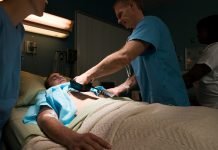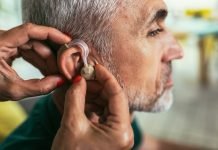
Approximately 7 million adults in the U.S. are living with opioid use disorder (OUD).
However, a new Northwestern Medicine study that evaluated residential treatment use among Medicaid enrollees across nine states found that only 7% of enrollees with OUD received residential treatment, which is an essential part of the recovery process for many.
Wide Variance Across States
Usage across the nine states varied considerably, the study found, with some states providing residential treatment for only 0.3% of their Medicaid enrollees with OUD, and others providing up to 14.6%.
Lindsay Allen, a health economist and assistant professor of emergency medicine at Northwestern University Feinberg School of Medicine, suggested that the contrast in usage could be attributable to differences in insurance coverage by state, supply of facilities, and the characteristics of the states’ populations.
Residential Treatment Centers: Key for Recovery
Residential treatment centers are 24-hour, live-in facilities that provide structured support, which can include individual and/or group therapy and medication for opioid use disorder, such as methadone and buprenorphine.
“Residential treatment—as long as it is evidence-based—is one of the best treatments for those with severe substance use,” Allen said.
“It helps move people into meaningful long-term recovery, which saves lives and reduces the need for costly health care in the long term.”
Importance of Medicaid Data
Medicaid provides health coverage to low-income people and is one of the largest payers for health care in the U.S.
As more Medicaid agencies begin covering residential OUD treatment, it is important to capture use of residential OUD treatment across state Medicaid populations for benchmarking purposes and to help guide policy decisions, Allen said.
The nine states that took part in this study—Delaware, Kentucky, Maryland, Michigan, North Carolina, Ohio, Pennsylvania, Virginia, and West Virginia—represent 14.9 million people (20% of all Medicaid enrollees).
Results from each state were de-identified due to confidentiality agreements with the state partners.
If you care about opioids, please read studies about anti-itch drug that may help prevent opioid overuse, and how cancer survivors develop opioid addictions.
For more information about opioids, please see recent studies about mind-body therapy that may reduce pain, decrease opioid use, and results showing how to reduce post-surgical pain without opioids.
The study was published in the Journal of Substance Use and Addiction Treatment.
Copyright © 2023 Knowridge Science Report. All rights reserved.




